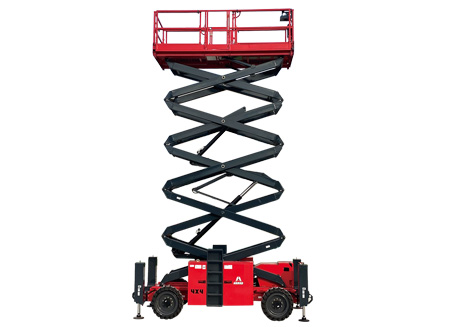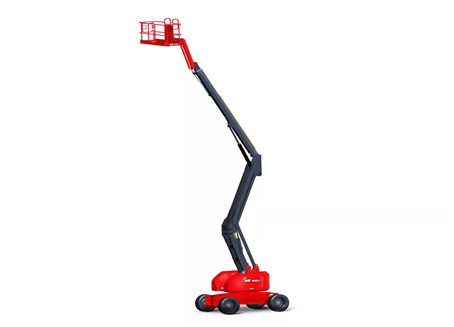How To Maintain Scissor Lifts And Boom Lifts?
This has become a reality: when you need to work long hours in high, hard-to-reach places, you turn to mobile elevated work platforms or MEWPs. Over the years, the two most popular MEWPs - scissor lifts and boom lifts - have become job sites and have become very valuable indeed.
Scissor lifts are particularly suitable for jobs that require vertical ascent and descent. So if you only need to climb to a position essentially just above you to hang plasterboard, install pipework or carry out electrical work, then a scissor lift is a cost-effective way of reaching it.
Boom lifts are the best choice when you need to access high ground but there are obstacles in the way, or if you are working at a higher altitude. Like scissor lifts, boom lifts are most commonly used for construction and maintenance tasks. However, boom lifts are supported by a hydraulically driven boom which can bypass obstacles and extend to greater heights.
Although there are similarities and differences between scissor lifts and boom lifts, both machines are available in different models designed to suit different working environments. There are rough terrain scissor lifts for all types of outdoor workplaces, and 'flat' scissor lifts for operation on flat, level surfaces. This is also true of boom lifts.
Electric Scissor Lift
Some boom lifts are built for the rough terrain common on construction sites and are powered by diesel, natural gas, or propane. Others are battery-powered electric flatbed models that work well on smoother, less rugged surfaces.
The Hered electric articulating boom lift is a four-wheel drive with a floating axle design for better off-road performance. The unique design makes the whole part move down, so the center of gravity is shifted down, making the machine more stable
As with all heavy equipment, it is important to inspect and maintain your scissor and boom lifts to ensure they operate efficiently and increase your productivity. It is important to check these machines at the start of each day, at shift changes, and when a new operator takes over the machine.
Rough Terrain Scissor Lift
Daily checks
Remember that the typical working environment of the machine will also affect how often you check it. If your operators are using the machine during multiple shifts per day, or if they are using the machine in a hostile environment, such as one where welding or sandblasting is taking place, it should be inspected more frequently. Ensuring that the machine is in good working order before operating it will greatly reduce the likelihood of it experiencing any type of problem or breakdown, which also makes it safer for the operator.
Checkpoints will vary depending on the type of machine, so refer to the machine's operation and safety manual to determine exactly what to check. That said, always check the machine for any visible leaks (oil, fuel, or battery fluid) or foreign objects during the daily pre-start check. Look out for dents, cracks in the welds or base material, or other damage. Machine decals and placards should be clean and easy to read.
The walk-around inspection of the machine is primarily a series of visual checks. The checkpoints during this inspection will vary slightly depending on the type of machine (scissor or boom lift) and its power system (combustion or electric).
Diesel Articulating Boom Lift
Once you have completed your walk-around, check the machine's battery, add fuel if necessary (internal combustion engines only), and top up the battery with water (electric models only). It is vital to check the battery water level of the motor. Batteries are costly for electric machines, so it is important that the user takes care of them.
Check the hydraulic oil level and ensure that the hydraulic system is clean - this is the most important way to ensure that the machine system is in optimum working order. Almost all MEWPs have hydraulic systems, and keeping these as clean as possible is key to prolonging the life of the machine and increasing productivity. Clean the area around the filter before changing it to avoid possible contamination of the hydraulic system. And always use the type of hydraulic oil recommended by the machine manufacturer to keep the tank clean and full.
Next, carry out a functional check of all systems in an area free from overhead and floor obstructions. Check all attachments or accessories before operating the machine. This includes ensuring that the machine's platform doors are properly locked and looking under the machine's chassis to check for loose or missing parts that could cause extensive machine damage during operation, etc. Hered electric articulating boom lifts have a high-precision load-sensing system to reduce accidental false alarms and downtime.
Never operate a machine that indicates a problem during the inspection. Switch off the scissor or boom lift, red mark it, and arrange for repairs as soon as possible.
Are you interested in learning more about aerial lifts for sale and how they can benefit you? For any other further queries, welcome to contact Hered Aerial Lifts, you can also visit our official website https://www.hered-lift.com or write to sales@hrdlift. com.
146
0
0





Comments
All Comments (0)